
In the months leading up to COP26, One Young World is ensuring the voices of young leaders of all backgrounds and sectors are meaningfully taken into account. One Young World has, in partnership with UK COP26 Youth Advisory Group member Will Ferrell, launched a series of monthly roundtable sessions, each focused on a key aspect of the climate crisis.
The outcomes of the sessions are consolidated by Will and relayed in monthly convenings chaired by Rt Hon Alok Sharma MP, President for COP26.
Previous Sessions
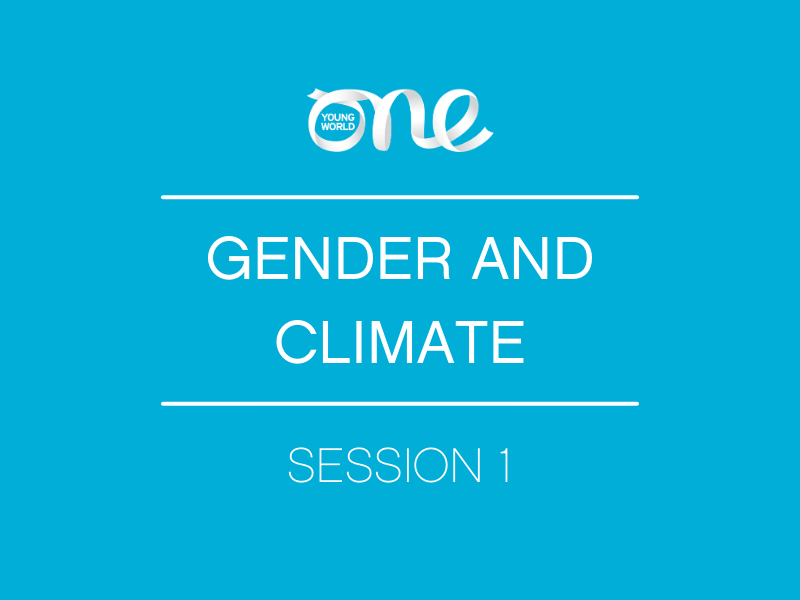
Session 1
The first roundtable session was hosted on Wednesday 24 February and concentrated on the intersectionality of gender and climate.
The session was attended by eight One Young World Ambassadors from around the world, who together represented a diverse range of backgrounds, from those leading grassroots organisations to those working in the corporate sector.
The key learnings from the session have been compiled below:
Identifying the main challenges
Limited access to funding:
- International climate finance - only 5% goes to less-developed countries.
- The application process is opaque and there is a lot of bureaucracy involved.
Land ownership issues:
- In many rural communities, women aren't on civil society databases so aren't aware of opportunities for funding, support etc.
- The majority of the land is owned by men or else is community-owned. This is prohibitive when women apply for funding, even though they are often the de facto managers of the land and farms.
Women are most impacted and least represented:
- The impact of extreme weather events (access to clean water, nutrition) disproportionately affects women.
- In many communities, women are tied down to families and less mobile when there are climate / agricultural issues.
- Yet in government, financing, and even at COP, men are much more widely represented.
Recommendations
Improved access for women farmers:
- Governments focus should be on the better mapping of women farmers.
- Ministries need to be aware of land ownership issues and ensure policies are more inclusive. There are lots of broad solutions about funding, but if land ownership issues remain, the funds will not reach their intended audience.
- Long-term - Countries should address cultural issues that prevent the transferral of land ownership to women.
More pressure on the private sector:
- The private sector needs to be held to account to ensure they're hitting targets. Greenwashing needs to be called out.
- More focus needs to be on the private sector, ensuring they're hitting targets.
- The Private sector must provide further funding for communities that require it whilst ensuring the conditionality attached to these funds are not prohibitive and do not create unnecessary red tape for applicants and their intended recipients
Ensuring fair representation:
- Men vastly outnumber women at COP at all levels. The UK government should push countries to send a more diverse range of delegates.
- Long term benefits - women are statistically more likely than men to vote on green initiatives.
Improved education / better marketing:
- Climate change has been the worst branded campaign in history - it is still referred to as simply an 'issue'. Rebranding needed to show how critical it is on a local, national and global level.
- Climate education should become a core part of national curriculums.
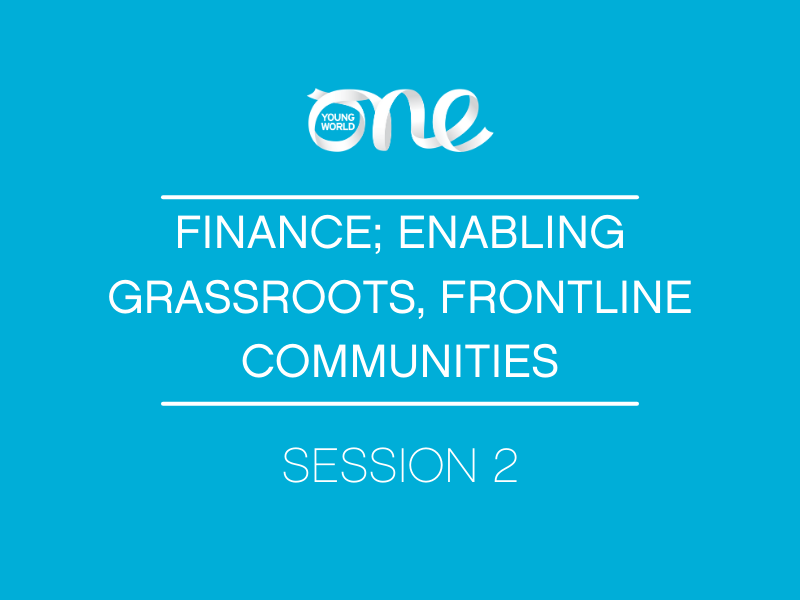
Session 2
On Wednesday 31 March, One Young World hosted the second roundtable session which centred around access to gender-responsive climate finance and activating grassroots, frontline communities in climate solutions.
The global discussion included Ambassadors based in India, Qatar, Guyana, Ireland, United Kingdom, Kenya and Colombia.
The key findings of the group:
Identifying the main challenges:
- There is currently an inequitable distribution of funding for and distrust of developing countries. This leads to a challenge of representation as financial decisions are being made about communities by people that don't live there nor truly understand their needs.
- There is no set definition of climate finance given by the UNFFFC. Not having a concrete definition gives governments an excuse to be non-committal about their contributions.
- There has been a noticeable climate finance rollback, particularly over the past year. Governments are quoting climate finance as a monetary number to distract from how low contributions are as a percentage of their overall wealth.
- Some sectors are receiving a lot more funding than others. For example, it is easier to measure the impact of mitigation than adaptation, so mitigation projects are seen as being much more attractive propositions.
- Climate enterprises often regress land rights for Indigenous communities.
Recommendations
- Transparency and monitoring of climate finance contributions are vital. Clear reporting which shows where finance is going and robust impact measurement both serve to incentivise funders.
- Developing countries must be given more autonomy. Donors should be on the ground or otherwise actively listen to and address the needs of the communities that they're funding. Funders should initiate different streams of funding as the financing needs of developed countries are very different from the financing needs of developing countries.
- There is a lot of potential in a business-to-business funding model where climate enterprises are tasked with distributing funds to where they are needed the most, as opposed to a top-down approach.
- There should be more focus on governments making concrete commitments and contributions towards the 100bn pledge.
- Priority should be on financing nature-based solutions - these are currently chronically underfunded, yet they sustain livelihoods.
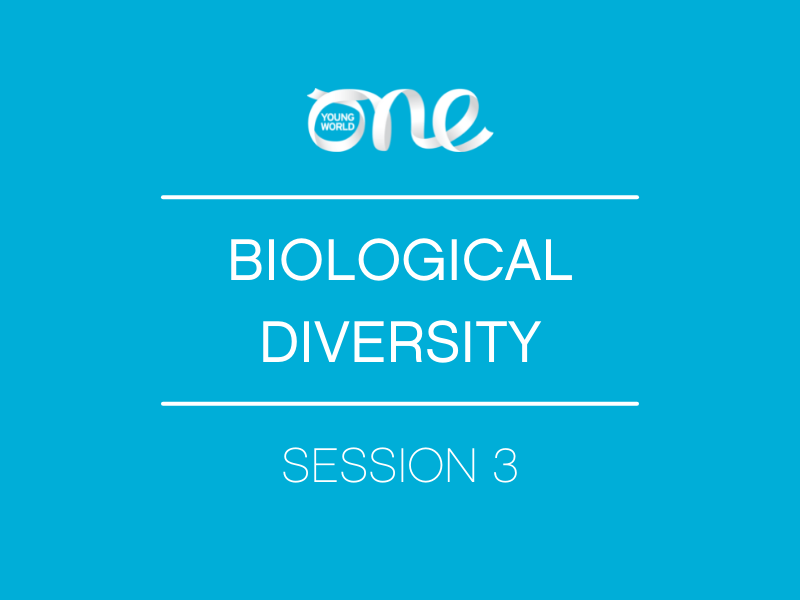
Session 3
The third session, hosted on Wednesday 28 April, was themed around biological diversity.
The discussion included voices from a diverse range of backgrounds, from representatives from the world's largest corporate organisations, to social entrepreneurs and academics.
Learn more about the key learnings from the discussion:
Main challenges:
- In certain regions, for example the Middle East, there aren’t many outlets for people who are working on these issues to convene.
- Biodiversity and nature-based solution targets aren’t particularly ambitious.
- Big focus on decarbonisation, but hitting net-zero targets doesn’t necessarily reduce habitat destruction.
- There is a global coordination issue - too many countries and communities are working in silos.
- Biodiversity and targets aren't clearly defined, particularly in a business context. At the moment, biodiversity isn't framed in a way that businesses take seriously.
- There isn't a mechanism in place for when governments don't meet their targets.
- The current approach relies on interconnected agencies within a continental area which doesn't work for island nations.
Solutions:
- Leveraging networks and communities to press on pressure points in government. It is often easier to influence non-state actors to deliver than it is with governments.
- Companies should be obliged to make specific, public commitments. Any companies setting a net-zero target should also be setting a biodiversity target.
- Greater access to funding for small island nations.
- Focus on regenerative products and bankable solutions. Funds are great, but there should also be an emphasis on education as farmers need to understand the economic value of environmental protection.
- Include relevant countries in discussions on biodiversity i.e. small island states, indigenous communities. Addressing hotspots for deforestation is vital.
Contributors:

Will Farrell (Session Lead)
Youth Advisor, COP26
United Kingdom
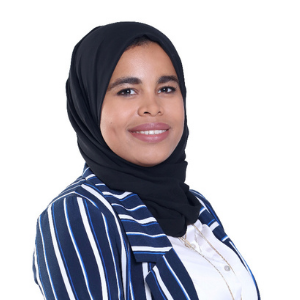
Rumaitha Al Busaidi
Director, Environment Society of Oman
Oman

Anna Stanley
Manager, Climate Action, World Business Council for Sustainable Development
United Kingdom

Joshua Powell
PhD Candidate, Institute of Zoology - Zoological Society of London (ZSL)
United Kingdom

Madhav Datt
Founder & President, Green the Gene
India

Neeshad Shafi
Co-Founder & Executive Director, Arab Youth Climate Movement Qatar LLC (G)
Qatar
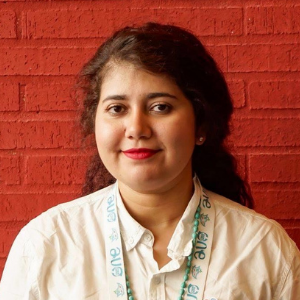
Xiomara Acevedo
Director, Fundación Barranquilla+20
Colombia

Isha Kulkarni
Fellow, RMI India
India

Unelker Maoga
Founder, Konservation
Kenya

Jennifer Griggs
Capital Markets & Advisory Division, Credit Suisse (Energy & Infrastructure)
United Kingdom
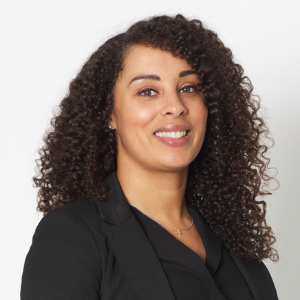
Aisling McCaffrey
Associate Director, Financial Services Advisory
Ireland

Siddhant Sarang
Founder, Youth Frontliners
India

Natalie Johnson
Senior HR Business Partner, Novartis
Switzerland

Clarena Amatha
Founder & CEO, TransFarm Ventures
Kenya

Jordan Lewis
Brand Manager, Dove Men+Care at Unilever
United States

Tracy Smith
Project Manager & Guyana's National Focal Point to the GCF, Office of the President
Guyana

Noriah Tadala Katungwe
Founder, Livingreen Ventures
Malawi
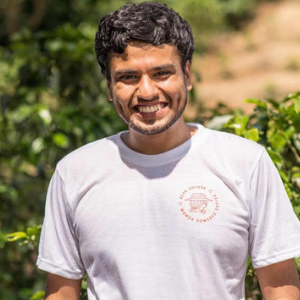
Abhinav Khanal
Co-Founder & Executive Director, Bean Voyage
Nepal
If you are a One Young World Ambassador and you would like to be included in a future session, please email Abbie via [email protected].